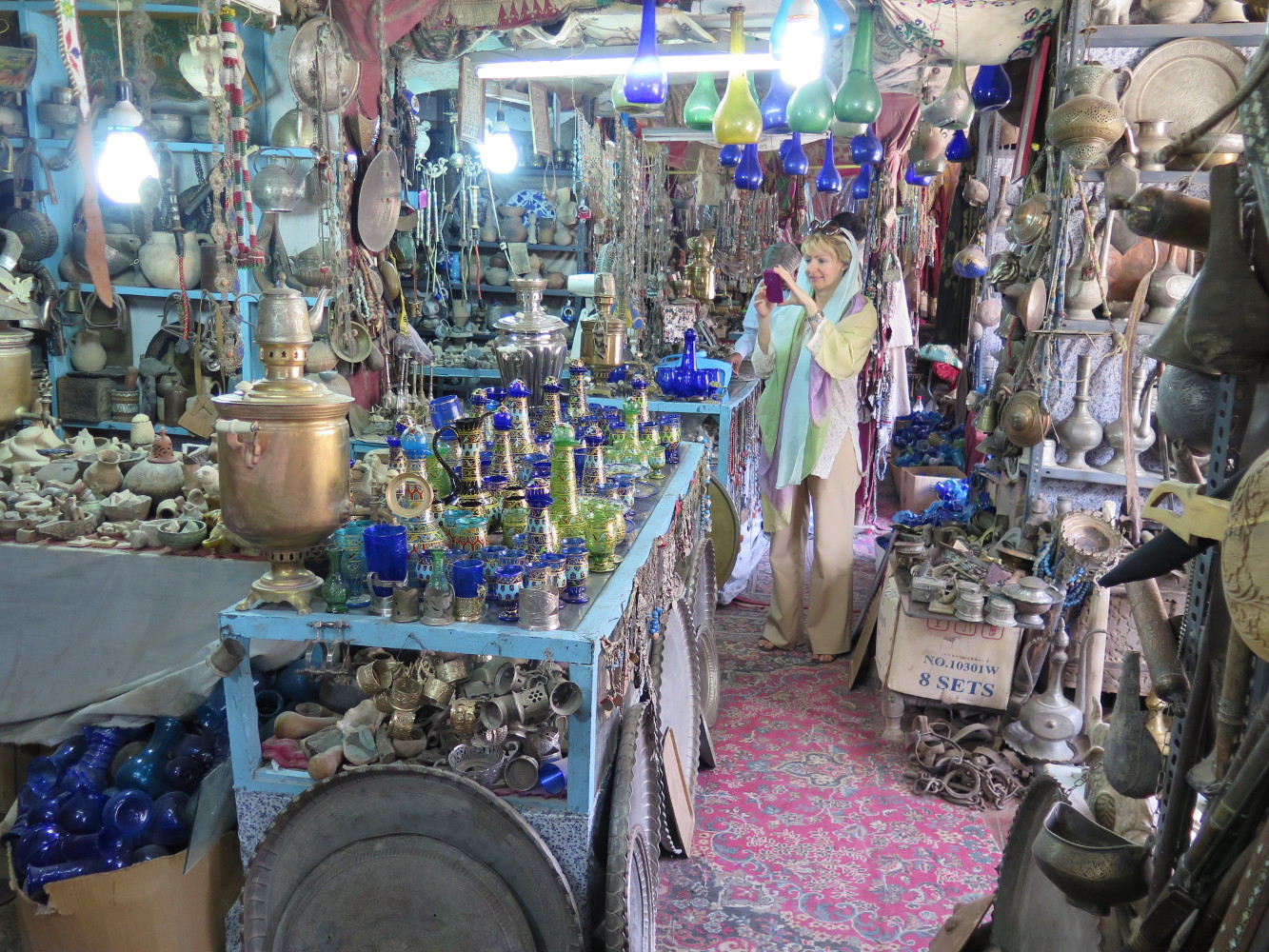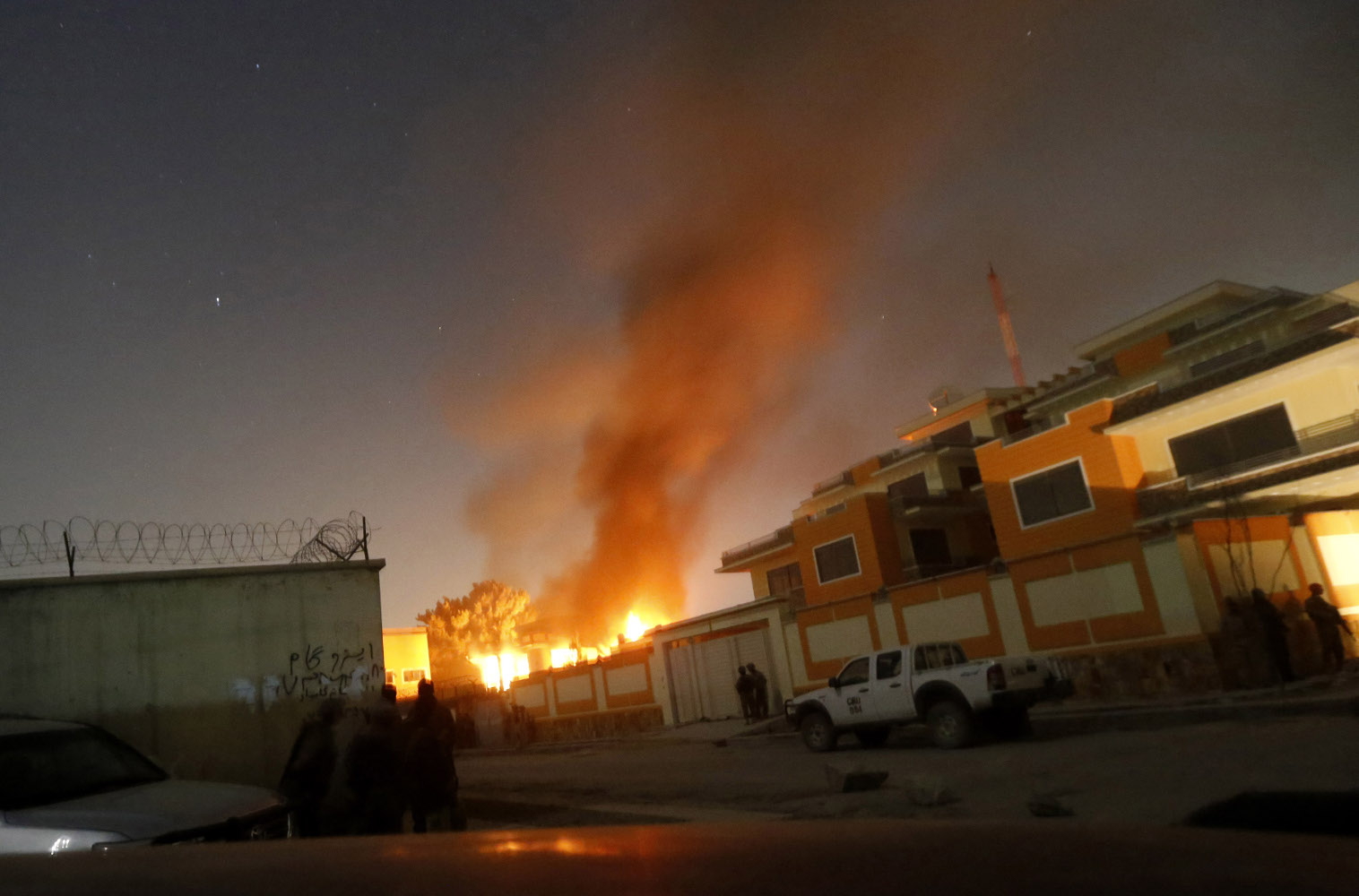Mairy Tsigoida narrowly escaped death at the hands of the Taliban where members of the Groenewald family were not as fortunate. She tells her story.
Normal is relative in Kabul, some say. For foreign workers, the mundane routine of office work and meetings could easily have been taking place in Sandton or Fourways. For Afghans, life goes on as they discuss the fate of their new president, Ashraf Ghani, until normal is interrupted by gunfire and bombs.
Mairy Tsigoida is a South African living in harm’s way in Afghanistan. She was 500m away when armed militants attacked a guesthouse, killing three members of a South African family and an Afghan citizen. But Tsigoida is not planning on leaving anytime soon. “Life in Kabul is routine. Office work and attending meetings during the day and living in our guest houses at night. My position also requires in-country travelling. I’ve visited Mazar-i-Sharif in the north and Herat in the west.”
Tsigoida works for the Norwegian Refugee Council as a monitoring and evaluation specialist for international social development programmes. She also loves taking photographs and exploring the city. Only that is not entirely possible at the moment, in the city of over three million people.
“Life is interspersed with shopping at the supermarkets during the week, where you can find South Africa’s Ceres juices, Mrs Ball’s chutneys and Nandos’ sauces. The weekends include traditional arts and crafts shopping or visiting the spa at the Serena Hotel, which is out of this world. We attend dinners at various locations and every weekend there are plenty of expats’ parties around the town. In fact, it becomes a little difficult to choose which one to go to.”

Mairy Tsigoida shops at a market in Kabul, Afghanistan. (Mairy Tsigoida)
There is no official tally of South Africans working in Afghanistan, but Tsigoida has encountered many, mainly in the security sector.
“Most are working for development and humanitarian organisations as I do, others are in embassies and many are in the UN, EU, World Bank and the foreign military. Generally, many of the South Africans here are in positions as heads of security in various organisations,” Tsigoida says.
Pierre Korkie in Yemen
The death of Free State schoolteacher Pierre Korkie in Yemen and three members of the Groenewald family in Kabul, has cast a spotlight on South Africans plying their trade in what many would consider volatile regions.
In May last year Korkie and his wife Yolande were taken captive by Al-Qaeda militants in Taiz. Yolande was released on January 10, and arrived back in South Africa on January 13.
On Saturday Korkie was shot dead, caught in the crossfire, during a failed rescue attempt by United States Special Forces. The US had been trying to free fellow hostage US photographer Luke Somers when a dog barked, setting off a fatal chain of events for South Africa.
Groenewalds gunned down
A week earlier nearly 3 000km away in Kabul, Werner Groenewald, his two children and other foreigners were under attack at a guesthouse.
Groenewald tried to protect his children. After being shot in the leg, he ran upstairs to find Rode (15) and Jean-Pierre (17), but all three were gunned down moments later by members of the Taliban. Werner’s wife Hannelie was at work at the local clinic at the time.
“When she got to the house, she saw the three bodies [of her family] taken out of the house and put into the ambulance,” said Groenewald’s sister-in-law Riana du Plessis, who lives in Pretoria, told Sapa on Monday.
Security in Kabul
Tsigoida has noticed that something has changed in Kabul lately. “The security situation has worsened and we have been advised not to visit certain areas and places, which could be targeted.
“Each foreign organisation has various degrees of security measures. In certain organisations, foreign staff are strictly not allowed to leave their compounds, hence, they have restaurants, gymnasiums, shops, clubhouses and sports facilities.
“Other organisations are lighter on security and foreign staff is allowed to travel around the city as long as each organisations’ security department knows where everyone is situated at all times. Living in Kabul city, literally, is no walk in the park!”
Violence encountered
Tsigoida’s first-hand encounter with the violence that plagues Afghanistan started on November 27, two nights before the Groenewalds were killed. Gunmen attacked a guesthouse when Tsigoida was there visiting a friend.
“The raid occurred when a suicide bomber breached the external back wall of their guesthouse, which sparked a gunfire clash that lasted close to four hours until we were evacuated to safety. The guesthouse was hit several times by mortars and rocket launchers, which indicated that the insurgent fighters are well armed,” Tsigoida explains.
“We heard every sound of gunfire and multiple explosions are very loud when these are prolonged and close to you. We cringed at every RPG that fell on the building, not to mention the noise of machine guns that raged from both sides.”
Tsigoida recalls how on the night that Werner Groenewald and his children were killed, the explosion that took place near her guesthouse blew the glass out of her window frames.

Smoke and fire rise from a foreign aid guest house in Kabul after a Taliban attack, which killed South African Werner Groenewald and his two children. (Reuters)
“The Taliban claimed this NGO that Groenewald worked for was proselytising Christianity, but as far as I know it was well regarded for offering health services.
“There is an innate fear that it can happen again at any moment, anywhere. I’m angry that innocent people are being killed – locals and foreigners, particularly those people who are genuinely committed to helping the Afghan people,” Tsigoida says.
US troops’ extended stay
Foreign troops have been in Afghanistan since 2001, targeting Osama bin Laden’s al-Qaeda fighters and also the Taliban.
The Taliban were soon driven out of the capital city, Kabul.
Ten years later bin Laden was eventually found by American soldiers in Pakistan, where he was shot and killed.
The US has slowly disengaged from Afghanistan, but recent developments suggest US president Barack Obama is likely to leave more soldiers in Afghanistan that previously stated.
“The fact that the US troops will be remaining in smaller numbers by the year end is of concern to some here in Kabul,” says Tsigoida. “We really do not know what will happen. I just hope that the countries withdrawing their military apparatus continue to support Afghanistan, for example, with humanitarian funding, which can help combat the root causes of conflict.”
“We do a lot of different projects to assist those we help: we provide education, including vocational training and teach training, we build homes for families, and we also provide free legal aid and counseling to help people, especially women, understand their rights.”
The extended stay of US troops appears to have riled up the Taliban, and this week’s Senate report on torture by US Central Intelligence Agency will have done nothing to endear the US to the Afghan people.
In that crucial relationship, Tsigoida sees the beginnings of normal. “All the Afghans that I have met are against the extremists and have no sympathy for a group that is causing havoc and destabilising their country.”
She has signed a long-term contract with her employer and is hopeful she can fulfill it to the end date and even then some.
“I feel that if you have taken the trouble to come all the way to Afghanistan … you need to adhere until the end of your contract. However, if the situation [becomes] intolerable at some point and your life is in danger, then it’s a pragmatic decision for each individual to make whether to stay or call it a day in Afghanistan.”